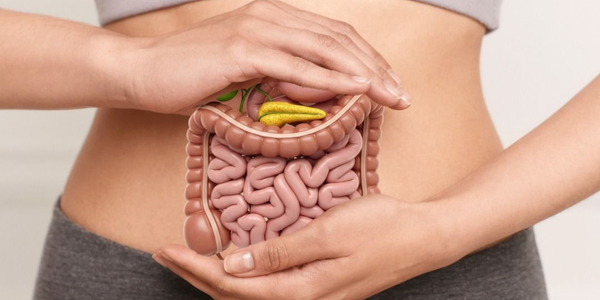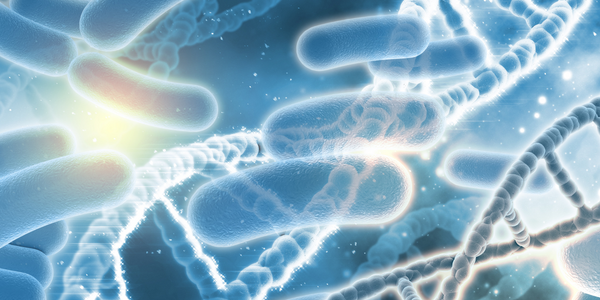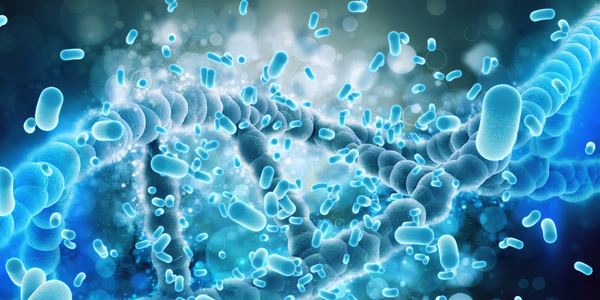Gut Health & Sleep: What's The Connection?
If you are someone who struggles to fall asleep at night, there could be many reasons to blame for it, right from stress, anxiety, depression to prolonged screen time. However, did you know that your gut health could be the number one reason why you experience insomnia, chronic fatigue, listlessness, and mental fog so often? Research shows that the intestinal microbiome creates and releases many neurotransmitters that play an instrumental role in influencing sleep. These include dopamine, serotonin, GABA, and melatonin, which are also produced by the brain. Any disruption in digestion can affect your sleep and vice versa. Let’s look at how Gut health and sleep work and what happens in great detail.
How are Gut Health and Sleep Connected?
Yes, our gut health does affect sleep. The gut is home to trillions of microorganisms, which researchers and scientists refer to as the gut or intestinal microbiome. The gut microbiome plays a very important role in controlling and managing digestion, boosting your immune system, regulating your appetite, uplifting your mood, and managing your emotional responses.
Every human being has a unique body clock, which is known as the circadian rhythm. This rhythm is a 24-hour cycle, which determines when you wake up and sleep, and regulates all important processes of your body such as digestion, metabolism, cell regeneration, hormone production, and brain wave activity, among other things. The sleep-wake cycle is thus one of the most important circadian rhythms of the body.
Our gut microbiota gets affected by what and how much we eat daily. One needs to be mindful about what they eat as any change to the gut flora can affect the intestinal metabolism. The microbes present in the gut flora create many molecules during the process of digestion, known as metabolites. These metabolites play an instrumental role in fastening the production of neurotransmitters like serotonin and dopamine. If there is any depletion in the diversity of the gut bacteria due to bad diet or any other reason, it can disrupt the formation of some of these metabolites, affecting the microbiota-gut-brain axis.

Thus, if you improve your diet, it could potentially improve cognitive function, memory formation, circadian rhythmicity, and overall mental health. With that, your sleep problems are also likely to diminish, proving that developing healthy eating habits can be an easy substitute to sleep medications.
Can Probiotics Affect Sleep?
Our gut health can be taken care of with prebiotics and probiotic . While probiotics are live bacteria that add to the good bacteria population in your gut when consumed, prebiotics are substances that come from certain types of fibrous carbs, which act as food for the good bacteria in the gut. Together, they help maintain good gut health, which further benefits your overall health and wellbeing. Perhaps that is why, one must add prebiotics and probiotic to their diet.
Research shows that one of the many benefits that probiotics are known for is that they aid in sleep. A study as recent as 2019 shows that those who were administered with probiotics slept better due to an improvement in their psychological well-being.

Final takeaway
Sleep deprivation and gut health are closely linked. Lack of sleep can affect your mood and overall mental well-being. As seen above, sleep-related problems are likely to affect those who have an unhealthy gut and vice versa. It is necessary to regulate and maintain a healthy gastrointestinal micro-ecological environment. Having said that, there is more research underway to find additional links between gut health and sleep.
References
- Gut microbiome plays important role in sleep regulation (https://www.sciencedaily.com/releases/2020/09/200923124804.htm)
- Amir Zarrinpar, Amandine Chaix, Shibu Yooseph, Satchidananda Panda,
Diet and Feeding Pattern Affect the Diurnal Dynamics of the Gut Microbiome, Cell Metabolism (https://www.sciencedirect.com/science/article/pii/S1550413114005051) - Li, Yuanyuan et al. “The Role of Microbiome in Insomnia, Circadian Disturbance and Depression.” Frontiers in psychiatry vol. 9 669. 5 Dec. 2018, doi:10.3389/fpsyt.2018.00669 (https://www.ncbi.nlm.nih.gov/pmc/articles/PMC6290721/)
- Marotta, Angela et al. “Effects of Probiotics on Cognitive Reactivity, Mood, and Sleep Quality.” Frontiers in psychiatry vol. 10 164. 27 Mar. 2019, doi:10.3389/fpsyt.2019.00164 (https://www.ncbi.nlm.nih.gov/pmc/articles/PMC6445894/)


























Leave a comment